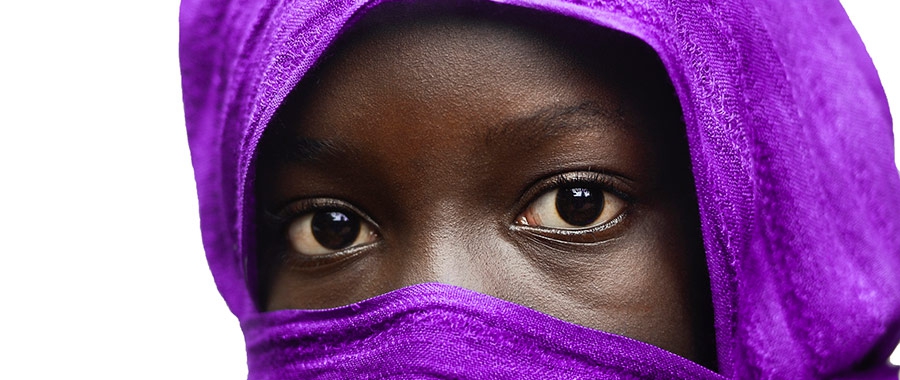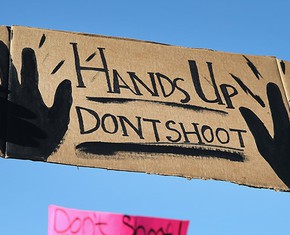The views expressed in our content reflect individual perspectives and do not represent the authoritative views of the Baha'i Faith.
During the past decade, the world’s refugee crisis has reached epic proportions. So, who exactly are the refugees?
In 1951, the United Nations Convention relating to the Status of Refugees defined a refugee as:
… someone who owing to a well-founded fear of being persecuted for reasons of race, religion, nationality, membership of a particular social group, or political opinion, is outside the country of his nationality, and is unable to or, owing to such fear, is unwilling to avail himself of the protection of that country …
The problem of displacement, once originally thought of as a temporary phenomenon after the Second World War, has now developed into an ever-challenging global issue. We live in an era of shrinking trust in government institutions, and continue to witness discrimination, intolerance, injustice and war, the root causes of displacing and marginalizing refugee populations. That means a refugee could be any of us—you or me. Refugees aren’t “them,” however—they’re simply people like us whose countries no longer give them the opportunity to live peaceful or productive lives.
The United Nations High Commission on Refugees says:
An unprecedented 65.6 million people around the world have been forced from home. Among them are nearly 22.5 million refugees, over half of whom are under the age of 18.
There are also 10 million stateless people who have been denied a nationality and access to basic rights such as education, healthcare, employment and freedom of movement.
… nearly 20 people are forcibly displaced every minute as a result of conflict or persecution … – www.unhcr.org
Every day, thousands of people run from war, persecution and terror. To illustrate this reality, consider this as not just a global crisis—but a testament of who we are and what we stand for as human beings. In the words of Canadian artist Emmanuel Jal, a former child soldier and refugee from South Sudan: “The worst people on earth are not only those who commit evil, but those who stand by and turn a blind eye.”

People have breakfast in displaced persons camp, Juba, South Sudan.
Since 2015, I’m proud that my country Canada has accepted over 45,000 Syrian refugees as part of its humanitarian initiative, through combined efforts by the government and civil society, to help millions of displaced Syrians resettle and integrate into various communities across Canada. The Prime Minister of Canada, Justin Trudeau, declared that we have a responsibility, as all countries do, to do more to help solve the global refugee and migration crisis. As hundreds of refugee families first landed in Toronto’s Pearson International Airport on December 1, 2015, they were not only greeted with a closet full of winter clothing, but were each personally embraced with a “welcome home” from the Prime Minister as they began their new life in Canada.
It wasn’t just the striking similarities with my parent’s journey that made such a deep impression on me, when they too arrived as refugees at that same airport on January 16, 1986. Rather, this recent influx of Syrian refugees forced me to step out of my first-world bubble and to embrace the value of humility in the face of human suffering, knowing that could have been me getting off the most recent plane. Nevertheless, empathy alone is insufficient. It requires shifting our perspective and transforming our compassion into action that better serves all of humanity.
Across 100,000 localities worldwide, Baha’is recently celebrated the bicentennial of the birth of Baha’u’llah, the prophet and founder of the Baha’i Faith. This global festival, which involved millions of people of different ethnic backgrounds all celebrating the oneness of humanity, marks a momentous opportunity for advancing the work of community-building everywhere. The Baha’i teachings say:
… One indeed is a man who, today, dedicateth himself to the service of the entire human race. The Great Being saith: Blessed and happy is he that ariseth to promote the best interests of the peoples and kindreds of the earth. In another passage He hath proclaimed: It is not for him to pride himself who loveth his own country, but rather for him who loveth the whole world. The earth is but one country, and mankind its citizens. – Baha’u’llah, Gleanings from the Writings of Baha’u’llah, p. 250.
The world’s current worldwide refugee crisis emphasizes that the time has come for the entire human race to move from a stage of adolescence to one of maturity and wholeness. We can now begin to recognize our essential oneness and unity as human beings.
The crisis not only underscores the value of embracing those in need of protection, but its value for all humans. It also presents an opportunity to contribute to the paradigm shift needed to foster the principle of unity in diversity into practice, and to help and accompany each member of our human family to building vibrant communities as pillars of a future world civilization. That conviction alone symbolizes what global citizenship is all about, not simply that we look out for one another, or support each other in times of hardship—but to value, respect and celebrate one another as fellow human beings.
You May Also Like
Comments

















At times I think we are reacher for it for having been forced to move and live among other cultures of the world and at the same time it is painful to lose ones place of birth and not even be able to visit those places that are filled with childhood memories and smells and sounds of ones culture that permeate so deeply and touches the heard and soul of each of us.